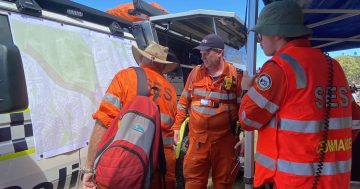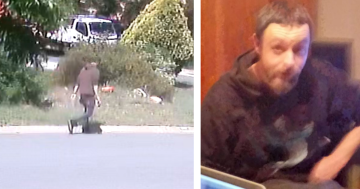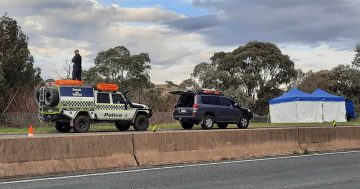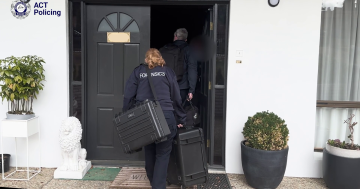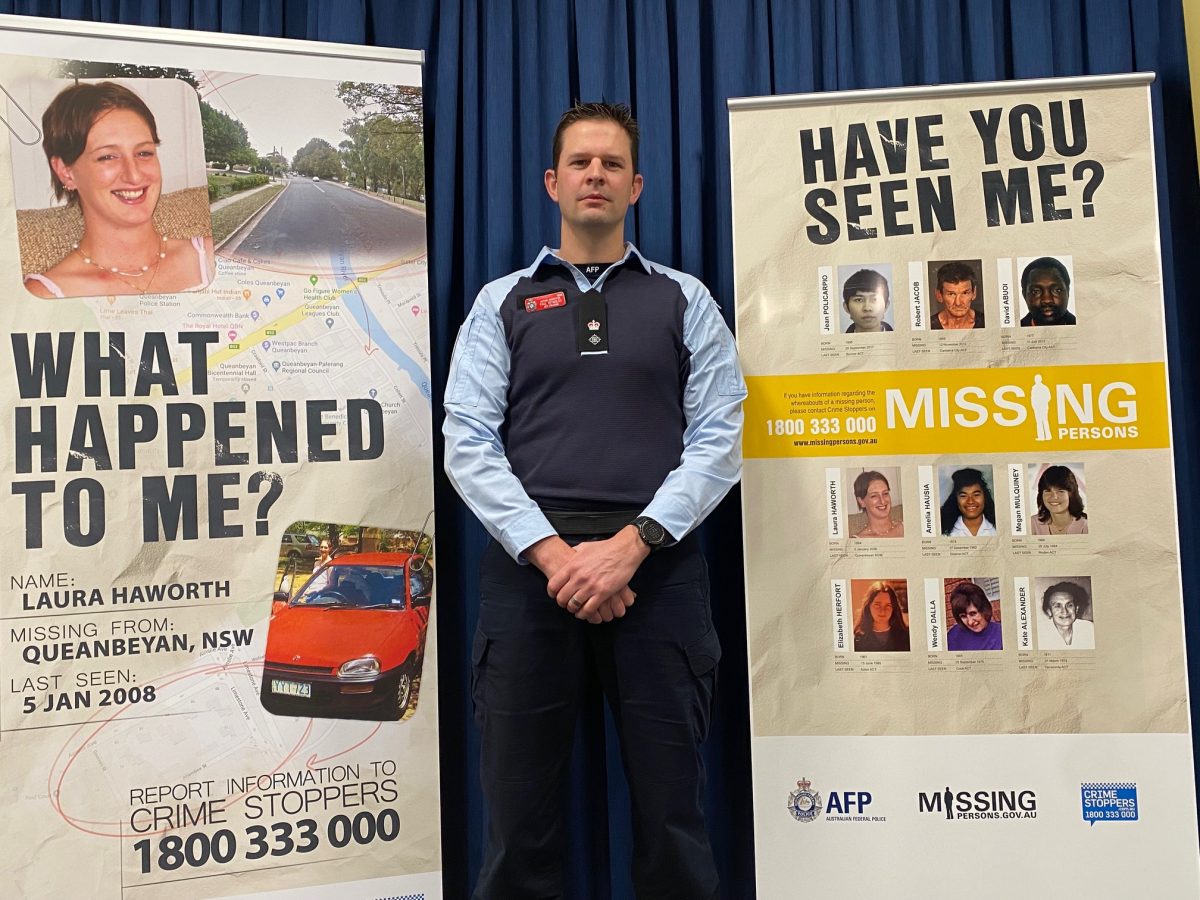
Detective Acting Inspector Paul Reynolds encouraged anyone who was worried a loved one had gone missing to get in touch as soon as possible. Photo: Claire Fenwicke.
The number of people reported missing in Canberra varies each day, but there’s a dedicated team working to make sure they’re not lost forever.
ACT Policing’s Missing Persons Team is a small unit within the force which facilitates the search for those who are reported missing.
It gives investigative oversight that can pull on a range of resources – be it general duty officers, search and rescue, forensics specialists or intelligence.
Coordinating the team is Leading Senior Constable Colleen McKillop.
“I was drawn to policing because I like working with people, and I felt great empathy for families of missing persons,” she said.
“The ones that particularly impact me are the young women who are going about their lives and just vanish, because to me that could be anybody.”
The team falls under the intelligence portfolio, which includes Detective Acting Inspector Paul Reynolds.
He said each missing person’s report was filed into a matrix which would help determine how urgently police resources could be deployed.
But that could always be overridden depending on the circumstances.
“It has built in triggers, so when a report is created we get as much information as we can, which informs what we do next,” Det Act Insp Reynolds said.
“If serious concerns are raised, that escalates … it might depend on whether it’s an elderly person with dementia, someone who can’t protect themselves from harm, if it’s on a cold Canberra winter’s night.”
The reasons why a person goes missing varies and police quickly need as much information as possible to get on the right track.
“The cooperation of loved ones and members of the public very much comes into it,” Det Act Insp Reynolds said.
“We can do the search ourselves, but it’s like climbing a mountain – if we can get support we can get to the top a lot faster rather than trudging up the hill.”
Police are involved in searching for missing people because of their resources, and because information has to be gathered in case the worst possible scenario occurs.
But officers also acknowledge sometimes people go missing because they deliberately don’t want to be found.
“If you’ve fled a situation you can work with us, we don’t have to tell people where you are,” Det Act Insp Reynolds said.
“We would say come to us first, we can support you … [but] if you can’t do that, you can at least acknowledge to us that you’re missing and we can let people know that you’re safe.
“Ultimately we don’t want to jeopardise your safety, we won’t force you back to an unpleasant environment.”
An unfortunate reality for the missing persons team is that there are sometimes other times when someone may not want to be found: when they have taken their own lives.
But police want people to know it isn’t a crime to go missing, and families can always reach out for help.
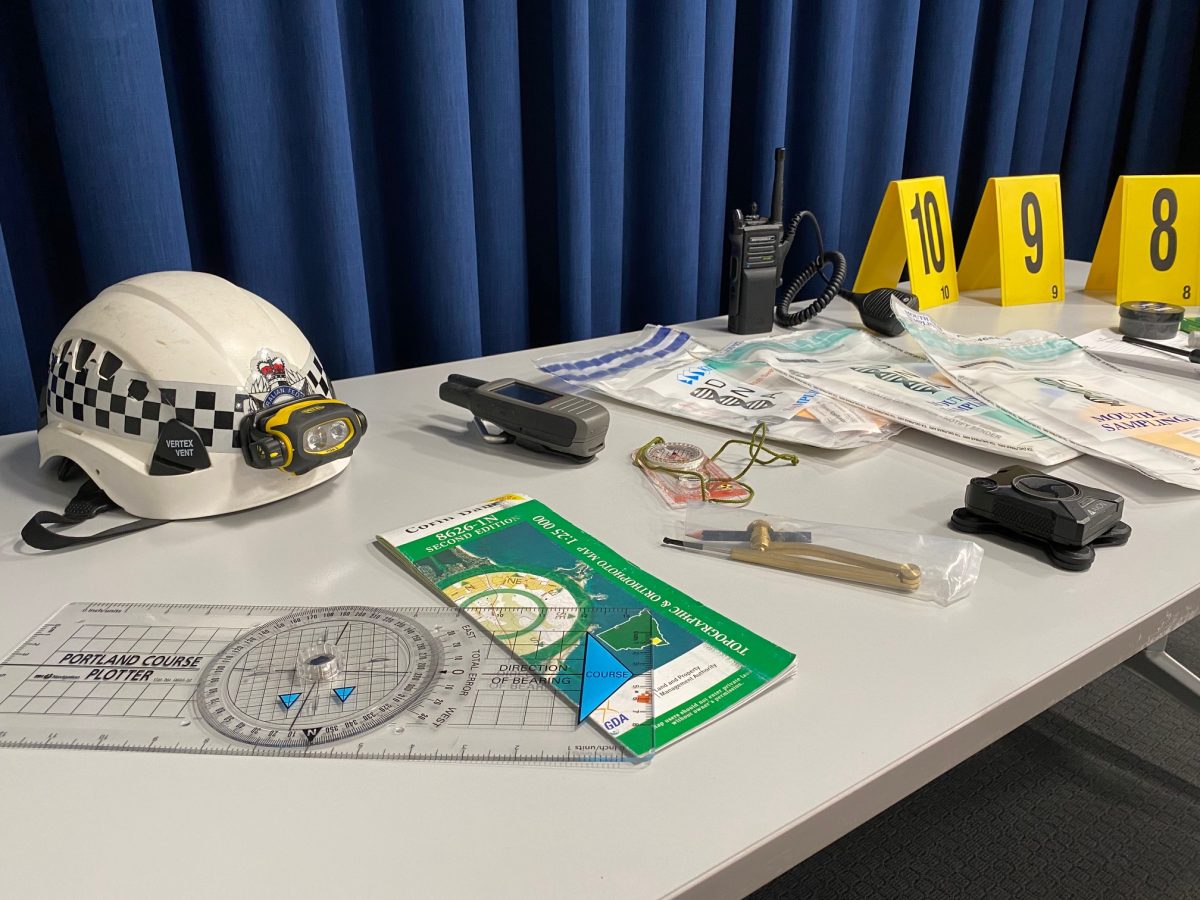
The Missing Persons Team utilises a range of police services and resources, including search and rescue, general duties officers and forensic specialists. Photo: Claire Fenwicke.
Other times people disappear because of sheer misadventure, which is why it’s important to report people missing as soon as you have a feeling something isn’t right.
“There is no timeframe [on when to make a report] … if anyone has concerns about someone’s welfare, contact us and we can assess on the phone with you, all cases are time critical,” Leading Snr Const McKillop said.
Det Act Insp Reynolds recalled a time someone went “missing in plain sight” when they visited Canberra Hospital.
An older woman had made an appointment one winter’s night, but had stepped outside for some fresh air.
“It turns out she had then fallen into a drain-way and broken her ankle,” he said.
When she didn’t show, the hospital reported her missing. Det Act Insp Reynolds was able to contact her on her mobile phone, on which she couldn’t make outgoing calls.
He said she was disorientated and didn’t know where she was.
“I ended up turning on my siren and she was able to guide me,” Det Act Insp Reynolds said.
“She was just three metres from a main arterial road, but she couldn’t get any help … people can go missing in the most unlikely environments.”
However there are cases that can’t be solved as quickly.
The ACT has 15 active long-term missing person’s cases, with police publicly seeking information about nine of them. The other six aren’t publicised due to the family’s wishes.
A long-term missing person is someone who has been missing for longer than three months.
Leading Snr Const McKillop said they would remain listed as missing until “credible information” suggested otherwise.
“Until we know what has happened, they will never be taken off the list,” she said.
“I spoke with one of [the long-term missing] person’s families recently, and they were so thankful someone had called, because they still want to know.
“Sometimes we can’t provide resolutions, but if I can make a family’s journey easier, it’s a privilege to do so.”
Missing person’s could be reported by calling 131 444 or by walking into any police station.
When making a report, police would ask for:
- The date, time and location the person was last seen
- A description of the person’s appearance the day they went missing (or were last seen), including clothing, hair colour, weight and height
- A recent photograph
- What happened in the lead up to the person going missing
- Any medications or medical history, including mental health
- Places they may visit
- The people they were last in contact with, along with names and contact information of family and friends
- Bank account numbers and social media accounts















